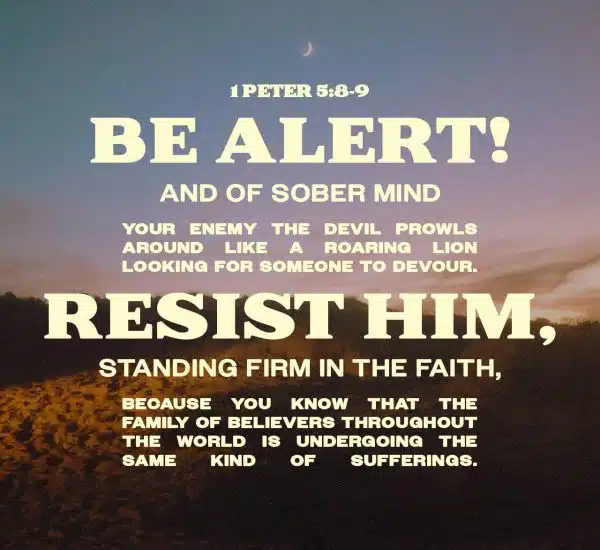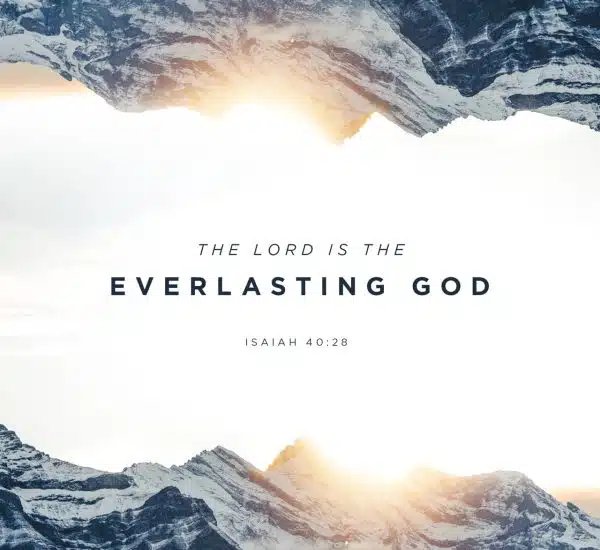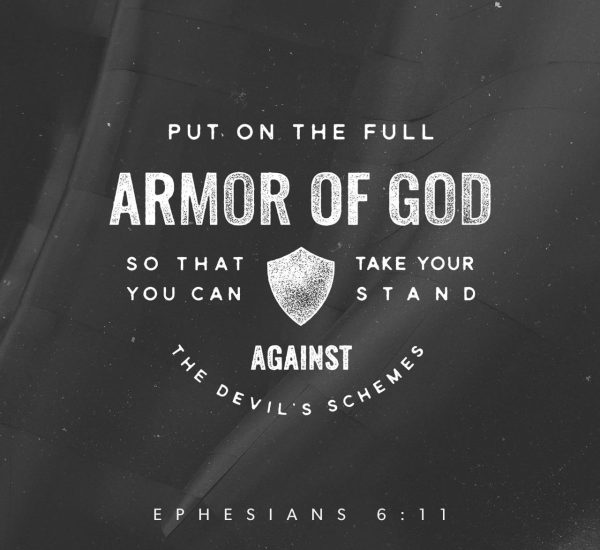MONDAY, OCTOBER 27TH, 2025
DIVINE SANCTUARY IN TIMES OF STORM
MEMORISE:
“Thou art my hiding place and my shield: I hope in thy word.” Psalm 119:114
READ: Psalms 32:6-7
6 For this shall every one that is godly pray unto thee in a time when thou mayest be found: surely in the floods of great waters they shall not come nigh unto him.
7 Thou art my hiding place; thou shalt preserve me from trouble; thou shalt compass me about with songs of deliverance. Selah.
INTRODUCTION: THE UNIVERSAL NEED FOR SHELTER
Life is an undeniable series of exposures. From the day we are born, we are exposed to risks: financial uncertainty, physical harm, emotional distress, and spiritual attacks. In the natural world, every creature seeks shelter—the bird its nest, the fox its den, and the sailor the safe harbor. This primal instinct to find refuge is deeply woven into the human experience.
For the believer, this search for security finds its ultimate answer not in a physical location, but in a spiritual reality: The Lord is my Hiding Place. This profound declaration, echoed throughout the Psalms, is more than a poetic metaphor; it is a doctrinal cornerstone that defines the Christian’s posture in the face of life’s relentless troubles. When we feel overwhelmed, exposed, or utterly insufficient, we have a mandate and a promise: we can always run to Him, our rock, our shield, and our sanctuary.
The Psalmist understood this truth intimately. In Psalms 32:7, he affirms, “Thou art my hiding place; thou shalt preserve me from trouble; thou shalt compass me about with songs of deliverance. Selah.” This verse paints a complete picture of divine protection: a shelter, preservation from the danger, and a resulting celebration of victory (“songs of deliverance”).
I. THE THEOLOGY OF THE HIDING PLACE
What exactly does it mean, in theological terms, for God to be our Hiding Place?
A. A Hiding Place from the Flood (Psalms 32:6)
The scripture speaks of the “floods of great waters.” In biblical prophecy and wisdom literature, “great waters” often symbolize overwhelming chaos, destruction, and judgment.
The Flood of Judgment: God is the ultimate Hiding Place from the consequences of sin and the floods of divine judgment. Through Christ, we are hidden in Him, covered by His righteousness, and thus the wrath intended for sin cannot reach us (Romans 8:1).
The Flood of Trouble: This also refers to overwhelming life events—financial collapse, terminal illness, persecution, or national crisis. These troubles are like powerful floods that threaten to drown our hope and stability. The godly person is exhorted to “pray unto thee in a time when thou mayest be found.” This implies a time-sensitive, deliberate seeking of God before the disaster fully strikes, ensuring the floods “shall not come nigh unto him.
B. The Sanctuary of God’s Presence (Psalm 91)
The concept of the Hiding Place is most fully developed in Psalm 91, which refers to the “secret place of the Most High.”
A Place of Abiding: To be hidden by God is not a momentary transaction; it is a permanent abiding (yashab – to sit, remain, dwell). It means constantly dwelling under His shadow.
The Shadow of the Almighty: A shadow offers protection from the harsh sun. The shadow of the Almighty signifies being under His immediate, active, and tender care. It is a place of absolute security, where fear is replaced by faith.
The theology is clear: Our protection is not based on our strength, but on our proximity. The closer we draw to God through prayer, worship, and obedience, the deeper we move into this impregnable shelter.
II. THE TESTIMONY OF DIVINE PROVISION
The promise that God is our Hiding Place is not abstract; it is proven in moments of extreme need. The experience shared by the General Overseer and his wife is a powerful, practical illustration of running to God when human resources fail.
A. The Pressure of the Need
The request was immediate and necessary: 5,000 naira (a significant sum in the early years of the ministry) to feed a multitude. The human answer was simple: “I didn’t have any money with me.” This is a common point of crisis for many believers: the moment the physical requirement exceeds the physical capacity.
The critical lesson here is the difference between today and now.
- The Need for Now (Urgency): Requires panic, frantic calls, and possibly compromising faith.
- The Need for Today (Assurance): Allows for faith, for turning the eyes off the empty pocket, and running to the Hiding Place.
B. The Prayer of Faith and Trust
The leader did exactly what the Psalmist prescribed: he ran to his Hiding Place. His prayer was not a desperate plea, but a faith-filled reminder of God’s ownership: “The people have come. They are Your people, and You can’t allow them to starve.”
This is the key to activating the Hiding Place:
- Acknowledging God’s Sovereignty: Recognizing that the problem is too big for you, but perfectly manageable for Him.
- Standing on Covenant: Reminding God of His relationship with His people and His reputation.
C. The Miraculous Manifestation
The provision came through three distinct, unexpected channels:
- The Stranger (The Unexpected Source): A man outside the church membership, driven by simple curiosity, provided the initial 1,000 naira. God used someone wholly disconnected from the immediate problem to initiate the solution.
- The Leaders (The Expected Source, Unexpected Timing): The youth leaders provided 2,000 naira. This provision came right after the first, maintaining the momentum of the miracle.
- The Completion (The Final Provision): The final 2,000 naira, delivered quickly, completed the full 5,000 naira needed.
This testimony proves that the Hiding Place is also a Provision Place. When God preserves you from trouble, He doesn’t just keep the water out; He provides the sustenance you need while you are hidden. He is the ultimate Shield (Psalm 119:114), deflecting the attack, and the ultimate Supplier, meeting the need behind the attack.
III. THE ROCK OF GOD’S WORD
The Psalmist links the Hiding Place explicitly to scripture: “Thou art my hiding place and my shield: I hope in thy word.” (Psalm 119:114). The Word of God is the mechanism that connects us to the shelter of God’s presence.
A. God’s Word as the Rock Higher Than I
In Psalm 61, the Psalmist cried that God should “lead me to the rock that is higher than I.” God’s word is this rock.
Higher Perspective: When we stand on God’s promises (His word), we gain a perspective that is higher than our circumstances. Our fear, debt, or illness may look like insurmountable mountains, but from God’s rock, they look like manageable hills.
Firm Foundation: The word is immutable—it does not change. When the floods of trouble come (which they will), the only thing that will not be moved is the sure promise of God (Matthew 7:24-27). This word hides us from the shifting sands of human anxiety and emotional turmoil.
B. The Preservative Power of Hope
Memorizing and meditating on the Word of God instills hope.
- Hope is not wishful thinking; it is a confident expectation based on God’s proven character and promises.
- Hiding from Shame: When you put your total trust in His word, He promises to hide you in His secret place and ensure you are never put to shame. Shame is the consequence of disappointed expectation. Because God’s promises never fail, the shame of failure is removed from those who trust Him.
IV. PRACTICAL STEPS TO ENTER THE HIDING PLACE
How does the believer practically access this divine shelter in a tangible way?
1. The Pathway of Prayer
As Psalms 32:6 mandates, prayer is the primary path to the Hiding Place. It is the action of turning from the problem and turning to God. When fear strikes, the first move must be to your prayer closet, not your phone or your bank account.
2. The Discipline of Meditation
We must follow the spirit of Psalm 119:114 by immersing ourselves in God’s Word.
- Daily Devotion: Prioritize reading and internalizing scripture.
- Confession: When trouble arises, do not confess the problem; confess the promise. Say, “The Lord is my Hiding Place, therefore, no weapon formed against me shall prosper.” (Isaiah 54:17).
3. The Act of Worship and Deliverance
The promise concludes: “thou shalt compass me about with songs of deliverance.” Worship is the final seal of the Hiding Place. When you worship in the midst of the storm, you are declaring:
- The enemy has not won.
- God is still in control.
- The deliverance is already certain.
Worship shifts the atmosphere from fear to faith and releases the ‘songs of deliverance’—a sign that the battle has already been won from the high ground of the Rock.
CONCLUSION: ABIDING IN THE ROCK OF AGES
The hymn Rock of Ages, Cleft for Me encapsulates this entire message. The Rock of Ages is the eternal Christ, who was cleft (broken) on the cross to create the Hiding Place for us. The water and the blood that flowed from His side are the double cure—saving us from the guilt of sin and the power of sin.
We bring “Nothing in my hands,” acknowledging that our own effort, tears, or zeal can never secure our safety. Our salvation and security are purely by grace.
Our only mandate is to cling simply to Thy cross and hide ourselves in Him. In a world full of turbulence, insecurity, and financial floods, our anchor remains fixed: The Lord is my Hiding Place. When you are hidden in Him, you are preserved, provided for, and guaranteed to be surrounded by songs of deliverance, never to be put to shame.
Father, please hide me in your secret place. Let me not be put to shame, but let me constantly be surrounded by songs of deliverance, in Jesus ‘ name.
BIBLE IN ONE YEAR: Luke 13-15
AUTHOR: PASTOR E. A ADEBOYE
HYMN 19: ROCK OF AGES CLEFT FOR ME
1. Rock of Ages, cleft for me,
Let me hide myself in Thee;
Let the water and the blood,
From Thy riven side which flowed,
Be of sin the double cure,
Save me from its guilt and power.
2. Not the labor of my hands
Can fulfill Thy law’s demands;
Could my zeal no respite know,
Could my tears forever flow,
All could never sin erase,
Thou must save, and save by grace.
3. Nothing in my hands I bring,
Simply to Thy cross I cling;
Naked, come to Thee for dress,
Helpless, look to Thee for grace:
Foul, I to the fountain fly,
Wash me, Savior, or I die.
4. While I draw this fleeting breath,
When mine eyes shall close in death,
When I soar to worlds unknown,
See Thee on Thy judgment throne,
Rock of Ages, cleft for me,
Let me hide myself in Thee.






